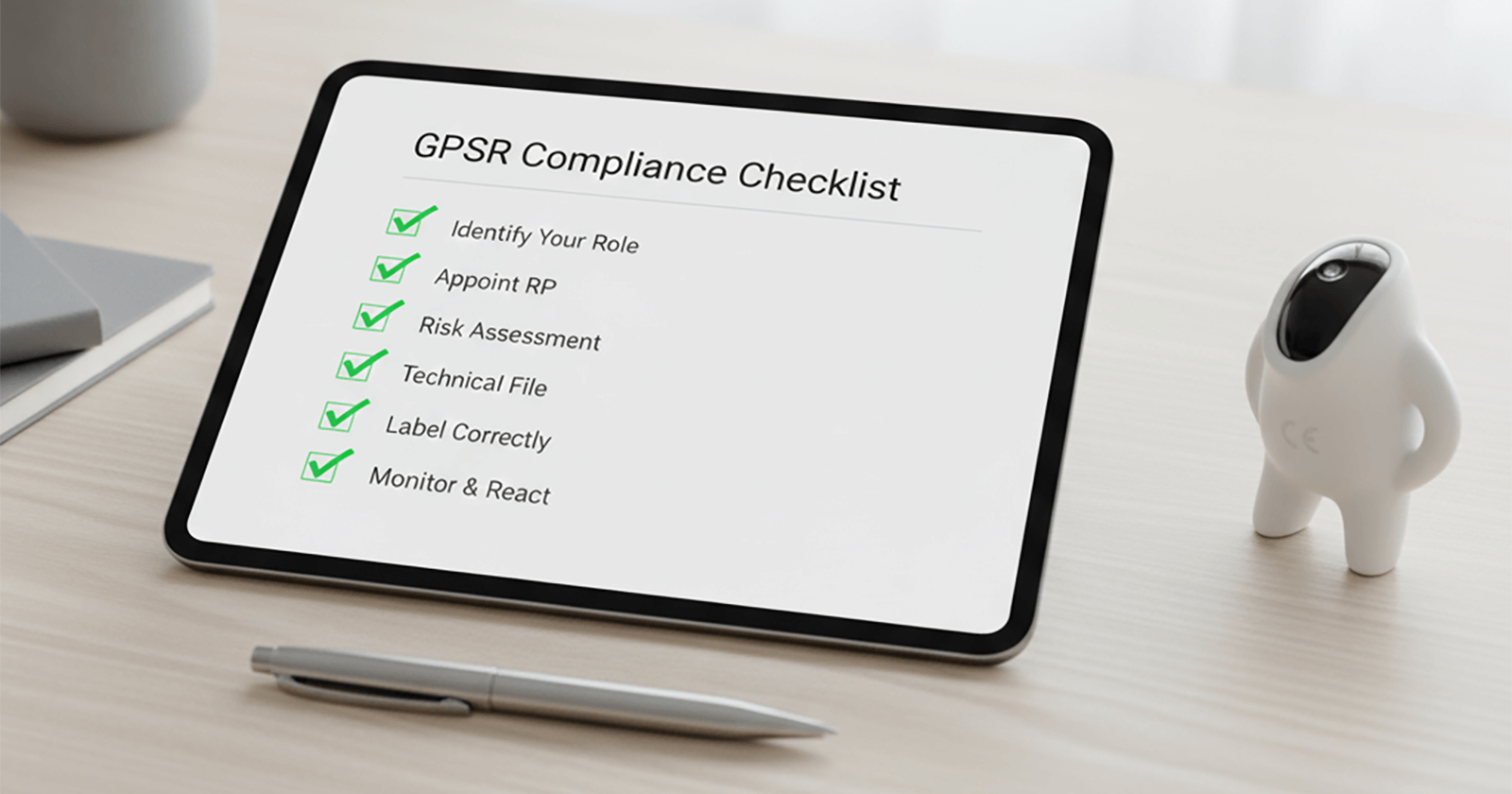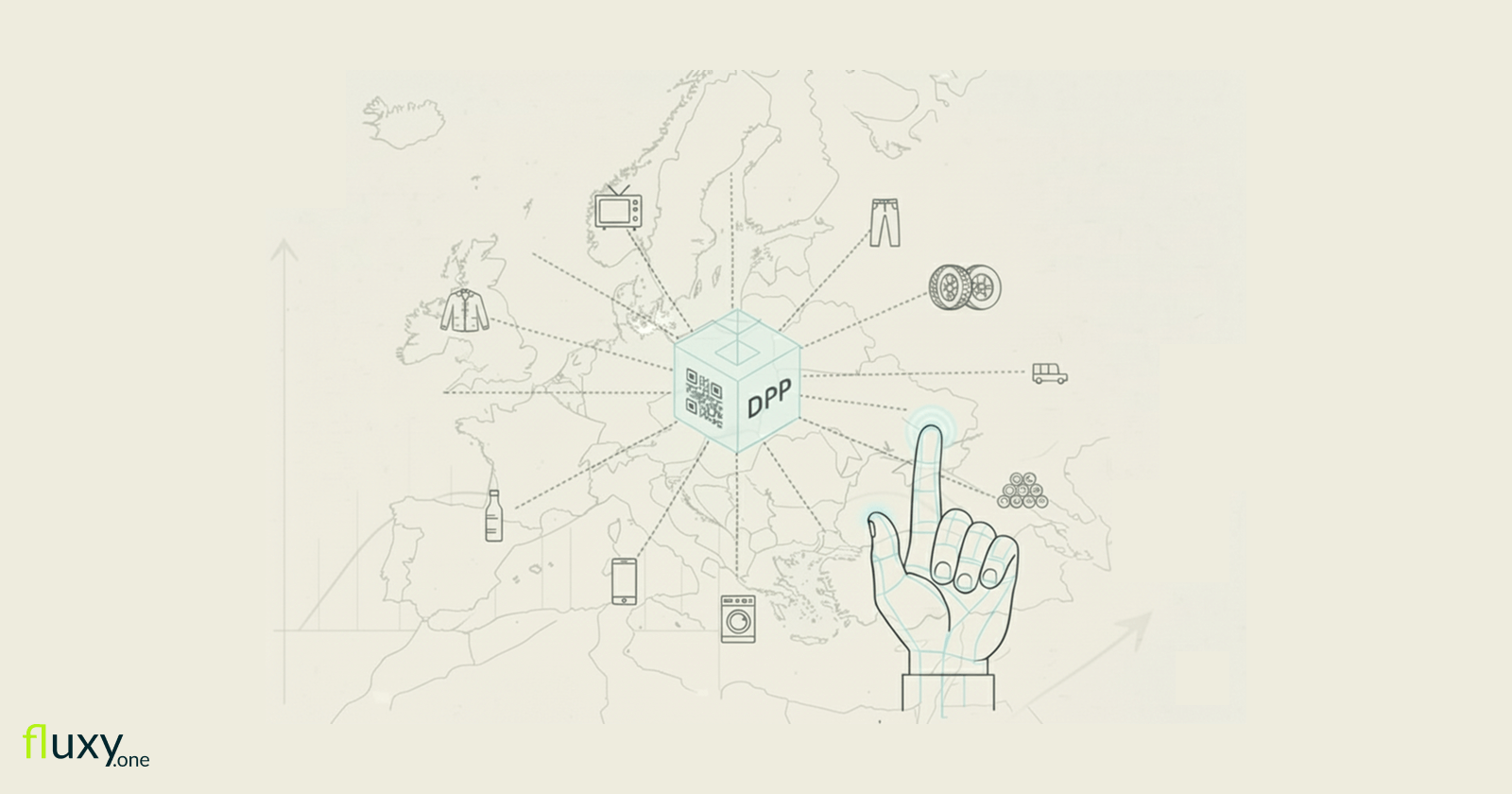🕒 Reading Time: 6–7 minutes
📅 Published: December 20, 2024
Table of Contents
- Introduction: The Shift Toward Sustainable Products
- What Products Are Affected by ESPR?
- How ESPR Changes the Game
- The Digital Product Passport (DPP): Your New Compliance Partner
- What This Means for Businesses
- Why It Matters: A Strategic Opportunity
- Explore Further
Introduction: The Shift Toward Sustainable Products
As climate concerns grow, the EU is taking bold steps to promote sustainability. The Ecodesign for Sustainable Products Regulation (ESPR) is not just another policy—it’s a game-changer aimed at making eco-friendly products the standard, not the exception.
A recent study by the Joint Research Centre (JRC) highlights the product groups and sustainability goals that will guide future regulations. This article breaks down what ESPR means for your business—and how Fluxy.One can support your transformation.
What Products Are Affected by ESPR?
The JRC identifies 18 priority product groups, split into two categories:
Final Products:
- Textiles and footwear
- Furniture
- Tyres
- Bed mattresses
- Detergents
- Paints and varnishes
- Lubricants
- Cosmetics
- Toys
- Fishing gear
- Absorbent hygiene products
Intermediate Products:
- Iron and steel
- Commodity chemicals
- Non-ferrous metals (excluding aluminum)
- Aluminum
- Plastics and polymers
- Pulp and paper
- Glass
Why these? They have a high environmental impact—and huge potential for sustainable improvement.
How ESPR Changes the Game
Beyond product groups, ESPR sets horizontal sustainability requirements that apply across industries:
🌱 Durability – Long-lasting products reduce waste
♻️ Recyclability – Easier disassembly and reuse
🌍 Recycled Content – Greater use of recycled materials
⚡ Energy Efficiency – Reduced energy consumption
📉 Resource Efficiency – More output with fewer inputs
These requirements support the EU’s Circular Economy Action Plan, pushing businesses away from linear production models.
The Digital Product Passport (DPP): Your New Compliance Partner
At the center of ESPR is the Digital Product Passport (DPP). It’s not just digital paperwork—it’s your verified compliance tool.
A DPP provides:
📊 Verified sustainability data
🧩 Information on materials, origin, and carbon footprint
🔍 Support for repair, reuse, and recycling
✅ Evidence of compliance with EU ecodesign rules
With Fluxy.One, businesses can easily implement ready-to-use Digital Product Passports and smart e-labeling tools—fully aligned with ESPR.
Make compliance fast, simple, and growth-focused.
What This Means for Businesses
Here’s how Fluxy.One helps you get ESPR-ready:
1. Audit Your Product Line
Centralize your product data and assess compliance with ESPR sustainability goals.
2. Invest in Green Innovation
Identify material or process changes needed. Our tools help you track improvements and avoid greenwashing.
3. Use Smart Technology
Automate DPP creation, data management, and information sharing across your supply chain.
4. Collaborate for Compliance
Work with suppliers and partners to ensure full-chain transparency and meet EU standards.
✅ Ready to future-proof your business?
Start your sustainability journey with Fluxy.One today.
Why It Matters: A Strategic Opportunity
Sustainability is now a competitive advantage, not just a legal checkbox. The shift toward transparency and circularity reflects what both regulators and consumers demand.
Being prepared for ESPR means:
✅ Winning trust with verifiable sustainability claims
❌ Avoiding greenwashing risks and penalties
🌱 Attracting eco-conscious customers and investors
🌐 Discover Fluxy.One
We help you turn compliance into a competitive edge.
Let’s build your Digital Product Passports—and your brand’s credibility.
👉 Explore the Platform or Book a Free Demo











